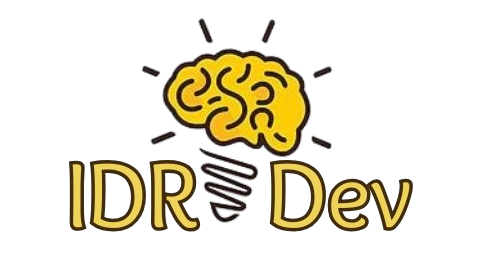Unlock Your Potential: How to Monetize Programming Skills
Programming is a highly sought-after skill in today’s digital world, opening doors to a wide array of opportunities. But what if you could transform your passion for coding into a profitable venture? This article explores various avenues for monetizing your programming skills, providing practical strategies, real-world examples, and actionable steps to help you generate income from your expertise. Whether you’re a seasoned developer or just starting your coding journey, discover how to turn your talent into a thriving source of revenue and achieve financial independence.
Background: The Growing Demand for Programming Skills

The digital landscape is constantly evolving, and with it, the demand for skilled programmers continues to surge. From web and mobile application development to data science and artificial intelligence, programming skills are essential across numerous industries. This high demand creates a fertile ground for monetization, offering various pathways for programmers to leverage their expertise for financial gain.
The Rise of the Gig Economy
The gig economy has revolutionized the way people work, providing flexibility and autonomy. Programming perfectly aligns with this trend, allowing developers to take on freelance projects, work remotely, and set their own hours. Platforms connecting freelancers with clients seeking coding expertise are booming, creating ample opportunities for programmers to monetize their skills.
Digital Transformation Across Industries
Businesses across all sectors are undergoing digital transformation, requiring them to invest in software development, data analytics, and automation. This digital shift has fueled the demand for programmers who can build and maintain these systems, driving up salaries and creating new avenues for freelance work and consulting opportunities.
Importance: Why Monetizing Your Skills Matters

Monetizing your programming skills offers several significant advantages beyond just earning income. It provides career flexibility, opportunities for continuous learning, and the potential to build a fulfilling and impactful career. Understanding the importance of monetizing your skills can motivate you to explore these options and take control of your professional destiny.
Financial Independence and Security
Generating income from your programming skills can provide financial independence and security. Whether you’re supplementing your current income or building a full-time career, monetizing your skills empowers you to control your financial future.
Career Flexibility and Autonomy
Monetizing your skills opens doors to career flexibility and autonomy. Freelancing, remote work, and creating your own products allow you to set your own hours, choose your projects, and work from anywhere in the world.
Continuous Learning and Growth
The programming field is constantly evolving, requiring continuous learning and adaptation. Monetizing your skills often involves tackling new challenges and exploring different technologies, fostering continuous learning and professional growth. This keeps your skills sharp and relevant in a dynamic industry.
Benefits: Advantages of Turning Code into Cash

The benefits of monetizing your programming skills extend far beyond a simple paycheck. They encompass career satisfaction, skill development, and the opportunity to make a real-world impact. Here’s a closer look at the specific advantages:
Increased Earning Potential
Skilled programmers are in high demand, and the ability to monetize your skills directly translates to increased earning potential. Whether through higher salaries, freelance rates, or product sales, programming offers lucrative financial opportunities.
Portfolio Building and Career Advancement
Working on diverse projects, contributing to open-source initiatives, and creating your own products helps build a strong portfolio. This portfolio serves as tangible evidence of your skills and experience, enhancing your career prospects and opening doors to more advanced roles.
Personal and Professional Fulfillment
Creating software that solves real-world problems, contributing to meaningful projects, and teaching others can be incredibly fulfilling. Monetizing your skills allows you to align your passion with your profession, leading to greater personal and professional satisfaction.
Building a Brand and Network
Monetizing your skills often involves building a personal brand and networking with other professionals in the field. This can lead to valuable connections, mentorship opportunities, and collaborations that further enhance your career.
Strategies: Effective Ways to Monetize Your Programming Skills

There are numerous strategies for monetizing your programming skills, each catering to different skill sets, interests, and goals. From freelancing and online courses to building your own software products, explore the options that best align with your expertise and aspirations.
Freelancing
Freelancing is a popular way to monetize your programming skills. Websites like Upwork, Freelancer, and Toptal connect programmers with clients seeking various coding services. Here’s how to get started:
- Identify your niche: Focus on a specific area of programming, such as web development, mobile app development, or data science.
- Build a strong profile: Showcase your skills, experience, and previous projects with compelling descriptions and testimonials.
- Start small: Begin with smaller projects to gain experience and build your reputation.
- Network: Connect with other freelancers and potential clients to expand your network and find new opportunities.
Online Courses and Tutorials
Sharing your knowledge and expertise through online courses and tutorials is a great way to monetize your skills. Platforms like Udemy, Coursera, and Skillshare provide opportunities to create and sell your own courses. Here’s how to create successful online courses:
- Choose a topic you’re passionate about: Select a topic within your programming expertise that you enjoy teaching.
- Create high-quality content: Develop engaging and informative video lectures, exercises, and assessments.
- Market your course: Promote your course on social media, online forums, and email marketing campaigns.
- Engage with your students: Respond to questions, provide feedback, and build a community around your course.
Building and Selling Software Products
Developing and selling your own software products is a more ambitious, but potentially lucrative, way to monetize your programming skills. This could involve creating a mobile app, a web application, a desktop software, or a SaaS (Software as a Service) product. Here’s how to approach building and selling software:
- Identify a problem: Find a problem that your software can solve for a specific target audience.
- Develop a minimum viable product (MVP): Create a basic version of your software with essential features to test the market.
- Gather feedback: Collect feedback from users and iterate on your software based on their suggestions.
- Market your product: Use online marketing, social media, and app stores to reach your target audience.
Open Source Contributions and Sponsorships
Contributing to open-source projects not only helps you improve your skills but can also lead to monetization opportunities. You can receive sponsorships from companies or individuals who appreciate your contributions, or you can offer paid support or consulting services related to the open-source project.
- Find a project you’re interested in: Choose an open-source project that aligns with your skills and interests.
- Contribute consistently: Regularly contribute code, documentation, or other valuable resources to the project.
- Build a reputation: Become a recognized contributor within the open-source community.
- Explore sponsorship opportunities: Look for companies or individuals who are willing to sponsor your work.
Consulting and Training
If you have extensive experience and expertise in a specific area of programming, you can offer consulting and training services to businesses and individuals. This could involve helping companies implement new technologies, optimize their software development processes, or train their employees in specific programming languages or tools.
- Identify your area of expertise: Determine the specific programming skills or technologies that you excel in.
- Build a portfolio of successful projects: Showcase your experience and achievements through case studies and testimonials.
- Network with potential clients: Attend industry events, join online communities, and reach out to businesses directly.
- Develop training materials: Create comprehensive and engaging training materials to deliver effective workshops and courses.
Examples: Real-World Success Stories

To inspire you on your monetization journey, here are a few real-world examples of programmers who have successfully turned their skills into lucrative ventures:
John Sonmez (Simple Programmer)
John Sonmez built a successful online business by creating courses, writing books, and providing coaching for software developers. He leveraged his programming expertise to teach others and build a thriving community.
Pieter Levels (Nomad List, Remote OK)
Pieter Levels created several successful online businesses, including Nomad List and Remote OK, using his programming skills. He identified market needs and built innovative solutions to address them.
Andrew Wilkinson (Tiny Capital)
Andrew Wilkinson founded Tiny Capital, a company that acquires and invests in internet businesses. He used his programming skills to build and scale these businesses, creating significant wealth.
Challenges & Solutions: Overcoming Obstacles to Monetization

While monetizing your programming skills offers significant opportunities, it’s important to be aware of the challenges and how to overcome them. These obstacles may include marketing your services, managing client expectations, and staying up-to-date with the latest technologies.
Marketing Your Services
Challenge: Attracting clients or customers can be challenging, especially when starting.
Solution: Invest in online marketing, build a strong online presence, and network with potential clients. Use social media, content marketing, and search engine optimization (SEO) to reach your target audience. Consider offering free consultations or introductory courses to attract new customers.
Managing Client Expectations
Challenge: Misunderstandings or unrealistic expectations from clients can lead to conflicts and dissatisfaction.
Solution: Clearly define the scope of work, deliverables, and timelines in a contract. Communicate regularly with clients, provide progress updates, and address any concerns promptly. Be transparent about your limitations and set realistic expectations from the outset.
Staying Up-to-Date with Technology
Challenge: The programming landscape is constantly evolving, requiring continuous learning and adaptation.
Solution: Dedicate time to learn new technologies, attend industry events, and participate in online communities. Read blogs, follow influential developers, and experiment with new tools and frameworks. Embrace continuous learning as a lifelong process.
Pricing Your Services
Challenge: Determining the right price for your services can be difficult, especially when starting as a freelancer.
Solution: Research market rates for similar services, consider your experience and expertise, and factor in the time and effort required for each project. Start with competitive rates and gradually increase them as you gain experience and build a reputation. Provide value-based pricing by focusing on the benefits you bring to your clients.
FAQ: Common Questions About Monetizing Programming Skills
Q: What programming languages are most in demand for monetization?
A: JavaScript, Python, Java, and Kotlin are currently in high demand for web development, data science, and mobile app development.
Q: How can I build a portfolio without prior professional experience?
A: Contribute to open-source projects, create personal projects, participate in coding challenges, and build websites or apps for friends or family.
Q: What are the best platforms for finding freelance programming work?
A: Upwork, Toptal, Freelancer, and Guru are popular platforms for connecting programmers with freelance opportunities.
Q: How much can I realistically earn as a freelance programmer?
A: Earnings vary based on experience, skills, and location, but experienced freelance programmers can earn anywhere from $50 to $200 per hour.
Q: What are some essential skills for monetizing my programming abilities?
A: Besides technical skills, strong communication, problem-solving, time management, and self-marketing skills are crucial for success.
Conclusion: Take Action and Transform Your Coding Passion into Profit
Monetizing your programming skills is not just about earning money; it’s about unlocking your potential, achieving career flexibility, and building a fulfilling career that aligns with your passion. By exploring the various strategies outlined in this article, you can transform your coding abilities into a thriving source of income. Start by identifying your strengths, setting clear goals, and taking consistent action. The world of programming offers boundless opportunities – seize them and turn your coding dreams into reality.
Ready to start monetizing your programming skills? Take the first step today: Identify one strategy that resonates with you and create an action plan to implement it. Start small, be persistent, and embrace the journey of turning your coding passion into profit. Your future success awaits!

